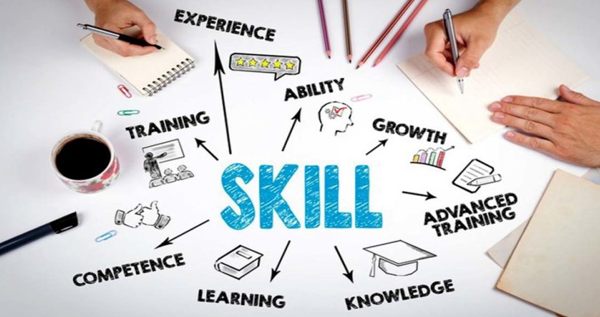Training Program on Skill Development
Training Program on Skill Development makes every on sucess in the gole.
Alwik - Tec is working on Training Program on Skill Development makes every on sucess in the gole.
Skill development training programs
Skill development training programs aim to equip individuals with the knowledge and abilities necessary to excel in various professions and contribute to the economy. They play a crucial role in enhancing employability, fostering career growth, and promoting economic development.
Benefits of skill development training
- Increased Productivity: Well-trained employees are more efficient and effective, leading to higher output and improved performance for individuals and organizations.
- Improved Employee Morale and Engagement: Investing in employee development shows appreciation and fosters a sense of value, leading to increased job satisfaction, motivation, and reduced turnover rates.
- Enhanced Adaptability: A skilled workforce can better adapt to evolving industry needs, technological advancements, and changing job market demands.
- Better Career Opportunities: Skill development can lead to promotions, career shifts, and improved earning potential.
- Stronger Competitive Advantage: Companies with skilled employees are better positioned to innovate, deliver high-quality products/services, and attract top talent.
Types of skill development training programs
Skill development programs cater to diverse needs and can be broadly classified as follows:
- Up-skilling/Re-skilling: These shorter programs (32-80 hours) focus on updating existing skills or acquiring new ones for those already employed.
- Short-Term Courses: These more comprehensive programs (200-600 hours) offer focused training, often with a women's empowerment and self-employment focus.
- Entrepreneurship Development Programmes (EDP): These programs (typically 80-90 hours) aim to foster entrepreneurial skills and knowledge.
- Long-Term Training: These in-depth programs (up to 650 hours) offer extensive training aligned with specific job roles and industry standards.
- Vocational Training: Focused on practical skills for various trades and professions.
- Technical Skills Training: Covers areas like coding, cybersecurity, and data analysis.
- Soft Skills Training: Develops essential interpersonal skills such as communication, leadership, and teamwork.
- Recognition of Prior Learning (RPL): Recognizes and certifies individuals' existing skills and experience.
Government initiatives for skill development in India
India's government actively promotes skill development through various schemes and initiatives under the Skill India Mission. Some prominent examples include:
- Pradhan Mantri Kaushal Vikas Yojana (PMKVY): Provides free skill training to youth in various industry-relevant skills, with a focus on job placement.
- National Apprenticeship Promotion Scheme (NAPS): Promotes apprenticeship training by offering financial support to employers and apprentices.
- Deen Dayal Upadhyaya Grameen Kaushalya Yojana (DDU-GKY): Focuses on skilling and employing rural youth.
- Jan Shikshan Sansthan (JSS): Provides vocational training to non-literate and neo-literate individuals, particularly in rural and urban low-income areas.
- Craftsman Training Scheme (CTS): Offers long-term training through Industrial Training Institutes (ITIs).
- Skill India Digital: A digital platform for skill development and jobs, facilitating training, certification, and employment opportunities.
Choosing the right program
When selecting a skill development program, consider these factors:
- Career Goals: Align the program with your aspirations for career advancement or a career change.
- Accreditation and Reputation: Look for reputable institutions with proven track records of quality education and industry-relevant content.
- Practical Application: Choose programs offering hands-on learning experiences through projects, case studies, or internships.
- Faculty Expertise: Seek out programs with experienced and knowledgeable instructors who can provide real-world insights.
- Flexibility and Accessibility: Consider whether the program format (online, in-person, blended) suits your learning style and schedule.
- Cost and Financial Assistance: Evaluate program fees and explore options for financial aid or government subsidies.
By carefully considering your needs and researching available options, you can choose a skill development program that helps you achieve your career aspirations and stay competitive in the evolving job market.
Call to ask any question
+91 7995 162 123









